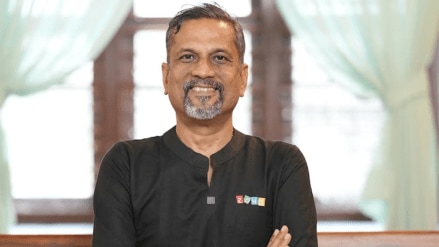As discussions around artificial intelligence (AI) continue to make waves in the tech industry, Zoho CEO Sridhar Vembu has urged caution regarding the claims of major job reductions and cost savings attributed to the technology. Vembu emphasized the importance of distinguishing between the hype surrounding AI and its actual effects, highlighting that while significant advances are being made, the current impact on the labor market remains limited.
Vembu’s comments came in response to growing reports suggesting AI’s potential to drastically change workforce dynamics. While many AI vendors project sweeping labor force changes and cost-cutting benefits, Vembu pointed out that studies, including one led by researchers Anders Humlum and Emilie Vestergaard, suggest that the real-world evidence of AI’s impact on productivity and employment is still minimal.
Vendors are promising large savings from eliminating jobs using AI but according to the study linked below [at least so far] the labor market impact of AI is "small".
— Sridhar Vembu (@svembu) April 26, 2025
The field is moving fast and I personally believe there will be impact but we have not seen the impact yet. It…
The study, titled Large Language Models, Small Labor Market Effects, examined the adoption of AI tools, particularly chatbots, in Denmark. Despite the rapid rise in AI investments, the study found no significant changes in productivity or job markets. The researchers concluded that the potential of AI to drive change hinges on businesses investing more in the technology, restructuring workplaces, and training employees. While AI tools have created some new tasks, the broader labor market has yet to experience major shifts in earnings or job roles.
Vembu shared the study with his followers on Twitter, stating that although AI’s progress is undeniable, businesses must maintain a clear-eyed view of the current situation and focus on reality rather than projections. He advised against prematurely assuming AI would cause massive disruption, stressing that the impact, while likely in the future, has not yet arrived.
The debate around AI’s role in the workforce sparked reactions from users across social media. One user pointed out that discussions around AI’s potential impact echo those from the 1970s and 1980s about computers. This individual argued that while AI might affect low-skill tech jobs in the short term, it will ultimately lead to a major realignment of skills and careers. Instead of fearing the change, they advocated for individuals to focus on upskilling and career adaptability as personal responsibilities.
Another user noted the buzzword nature of AI, highlighting that many discussions fail to distinguish between AI and generative AI. As AI technology evolves over the next few years, they predicted that the workforce will adapt by acquiring new skills, thereby minimizing AI’s disruptive impact.
A third user observed that while AI may not directly lead to job cuts, its potential to boost productivity could free up some workers, allowing them to transition into roles better suited to their skill sets.
Others emphasized that AI is not the only area of technological advancement. They suggested that businesses should also consider adopting existing, proven technologies, which, despite being less flashy than AI, still offer substantial opportunities for growth and innovation.
Vembu has long been an advocate for upskilling. Previously, he acknowledged that while AI could generate up to 90% of code in software development, this was not because AI could replace human insight, but because much of the coding work consists of repetitive tasks. Drawing from the classic software engineering text The Mythical Man-Month, Vembu differentiated between “accidental complexity,” which AI handles well, and “essential complexity,” which requires human intelligence. He expressed skepticism about whether AI could ever truly replicate the intuitive and creative processes that humans bring to complex problem-solving.
In his ongoing discussions, Vembu has emphasized the importance of human adaptability and skill development in navigating the evolving tech landscape. His message serves as a reminder to focus on continued learning, resilience, and the integration of new technologies in ways that align with human strengths and capabilities.
